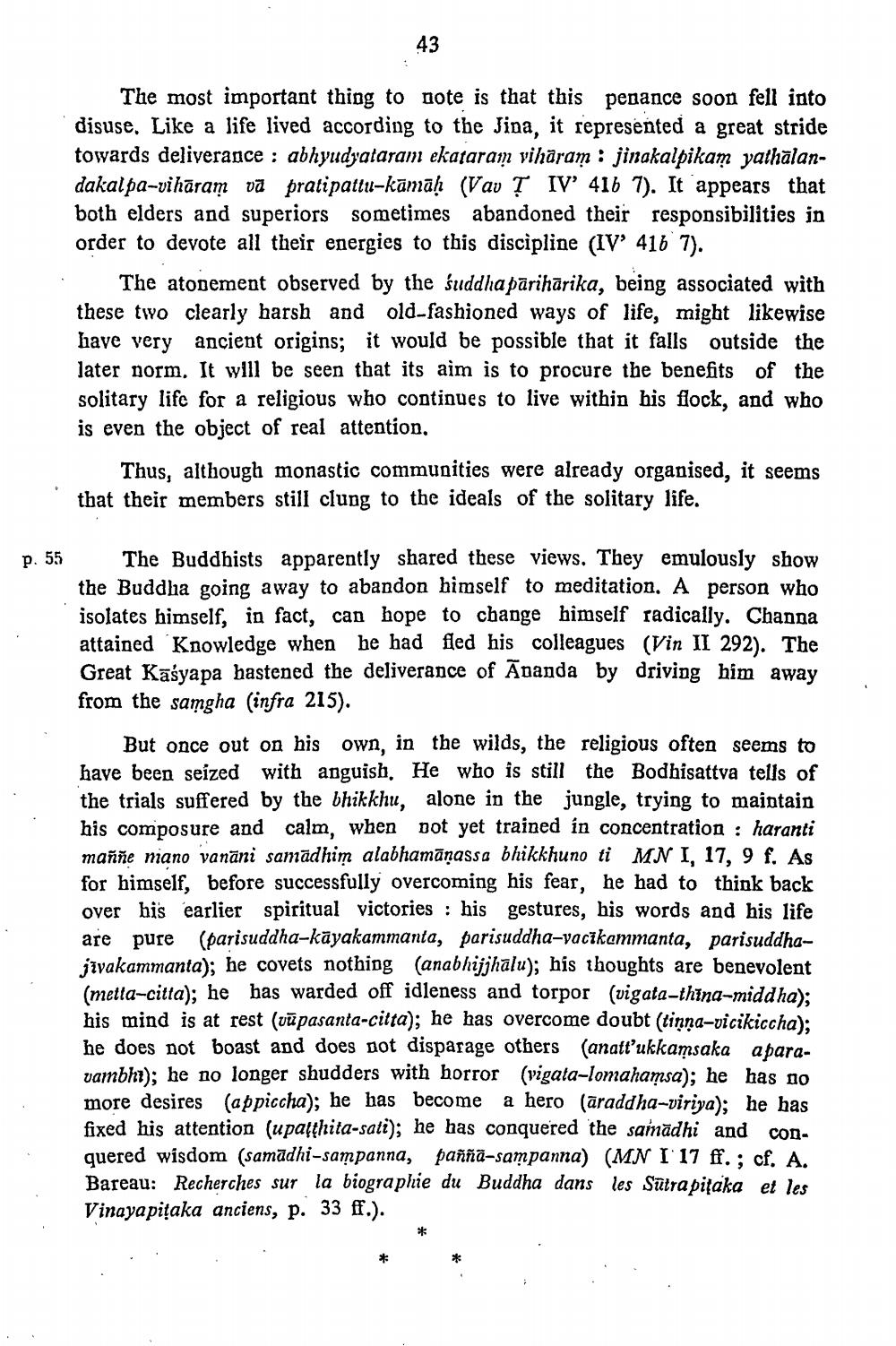________________
43
The most important thing to note is that this penance soon fell into disuse. Like a life lived according to the Jina, it represented a great stride towards deliverance: abhyudyataram ekataram vihāram: jinakalpikam yathalandakalpa-vihāram vā pratipattu-kāmāḥ (Vav T IV' 416 7). It appears that both elders and superiors sometimes abandoned their responsibilities in order to devote all their energies to this discipline (IV' 416 7).
The atonement observed by the suddhapārihārika, being associated with these two clearly harsh and old-fashioned ways of life, might likewise have very ancient origins; it would be possible that it falls outside the later norm. It will be seen that its aim is to procure the benefits of the solitary life for a religious who continues to live within his flock, and who is even the object of real attention.
Thus, although monastic communities were already organised, it seems that their members still clung to the ideals of the solitary life.
p. 55
The Buddhists apparently shared these views. They emulously show the Buddha going away to abandon himself to meditation. A person who isolates himself, in fact, can hope to change himself radically. Channa attained Knowledge when he had fled his colleagues (Vin II 292). The Great Kasyapa hastened the deliverance of Ananda by driving him away from the samgha (infra 215).
But once out on his own, in the wilds, the religious often seems to have been seized with anguish. He who is still the Bodhisattva tells of the trials suffered by the bhikkhu, alone in the jungle, trying to maintain his composure and calm, when not yet trained in concentration: haranti maññe mano vanāni samādhim alabhamāṇassa bhikkhuno ti MN I, 17, 9 f. As for himself, before successfully overcoming his fear, he had to think back over his earlier spiritual victories: his gestures, his words and his life are pure (parisuddha-kāyakammanta, parisuddha-vacikammanta, parisuddhajivakammanta); he covets nothing (anabhijjhālu); his thoughts are benevolent (metta-citta); he has warded off idleness and torpor (vigata-thina-middha); his mind is at rest (vupasanta-citta); he has overcome doubt (tinna-vicikiccha); he does not boast and does not disparage others (anatt'ukkamsaka aparavambhi); he no longer shudders with horror (vigata-lomahamsa); he has no more desires (appiccha); he has become a hero (araddha-viriya); he has fixed his attention (upatthita-sati); he has conquered the samadhi and conquered wisdom (samādhi-sampanna, pañña-sampanna) (MN I 17 ff.; cf. A. Bareau: Recherches sur la biographie du Buddha dans les Sutrapitaka et les Vinayapitaka anciens, p. 33 ff.).
*




